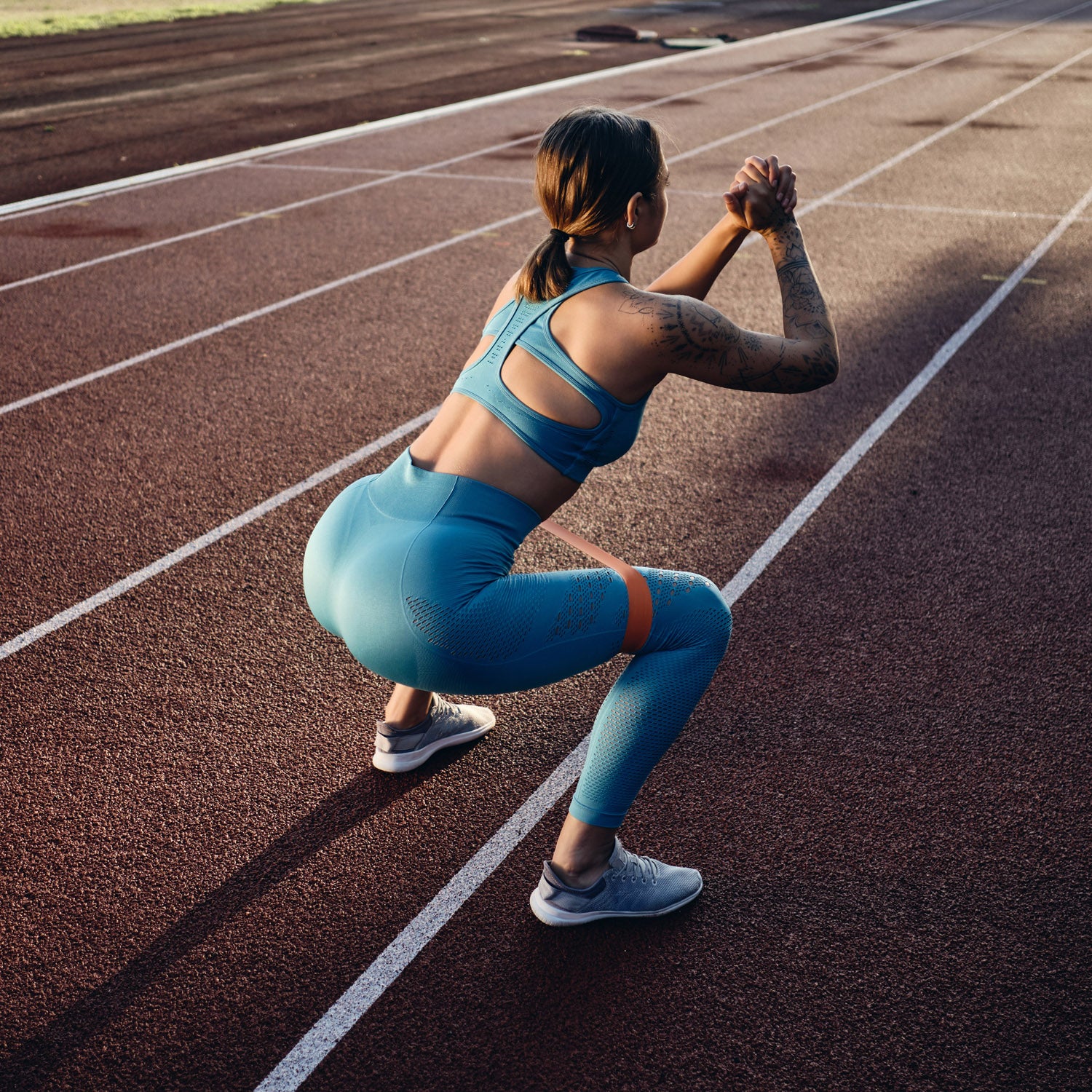Activation exercises are one of the best ways to warm up for a workout. You can develop a highly effective routine of movements before each session if you know which exercises to pick from.
By activating the leg muscles, particularly the glutes, hamstrings and quads, you can improve the brain-muscle connection to improve performance. It’s also a way to protect yourself against injury.
Turning these exercises into a pre-workout habit is an easy and simple way to boost your long-term progression over time.
Banded Squats
Utilising a resistance band in your warm-up is a good way to keep the intensity low so you get the right level of activation without fatiguing your muscles. Standing on one end of a resistance band and holding the other while performing squats will help to get the major leg muscles firing.
Crab Walks
Crab walks might look a little silly, but they’re a really useful dynamic way to activate the gluteus medius muscles - the smaller muscles to the side of your buttocks. You loop a resistance band just below your knees, get into a squat position and walk sideways one step at a time.
Storks
Performing this static exercise will also help activate the lateral glutes including the gluteus medius. Take something like a balance disk or a medicine ball and place it against a wall, standing side on to the wall yourself. Lift your leg closest to the wall and press against the balance disk to hold it in position with your outer thigh. Stand tall and press your leg into the wall, holding for about 30s before switching to the other side.
Bear Crawl
Doing a bear crawl on all fours is a simple but great activation exercise for the whole body. You have to engage your quads and glutes to drive you forward while your core keeps you stable and your shoulders and arms stop you from collapsing. Do about 10-15 metres twice over with a short rest in between.
Walking Lunges
This is another dynamic exercise that works your glutes, quads and hamstrings without adding too much intensity. Around 15-20 metres for two rounds is about enough. Try holding your arms above your head or adding a twist to the end of each lunge for further coordination benefits.


Share:
6 Foods That Can Support Your Mental Health
5 Ways To Train Grip Strength